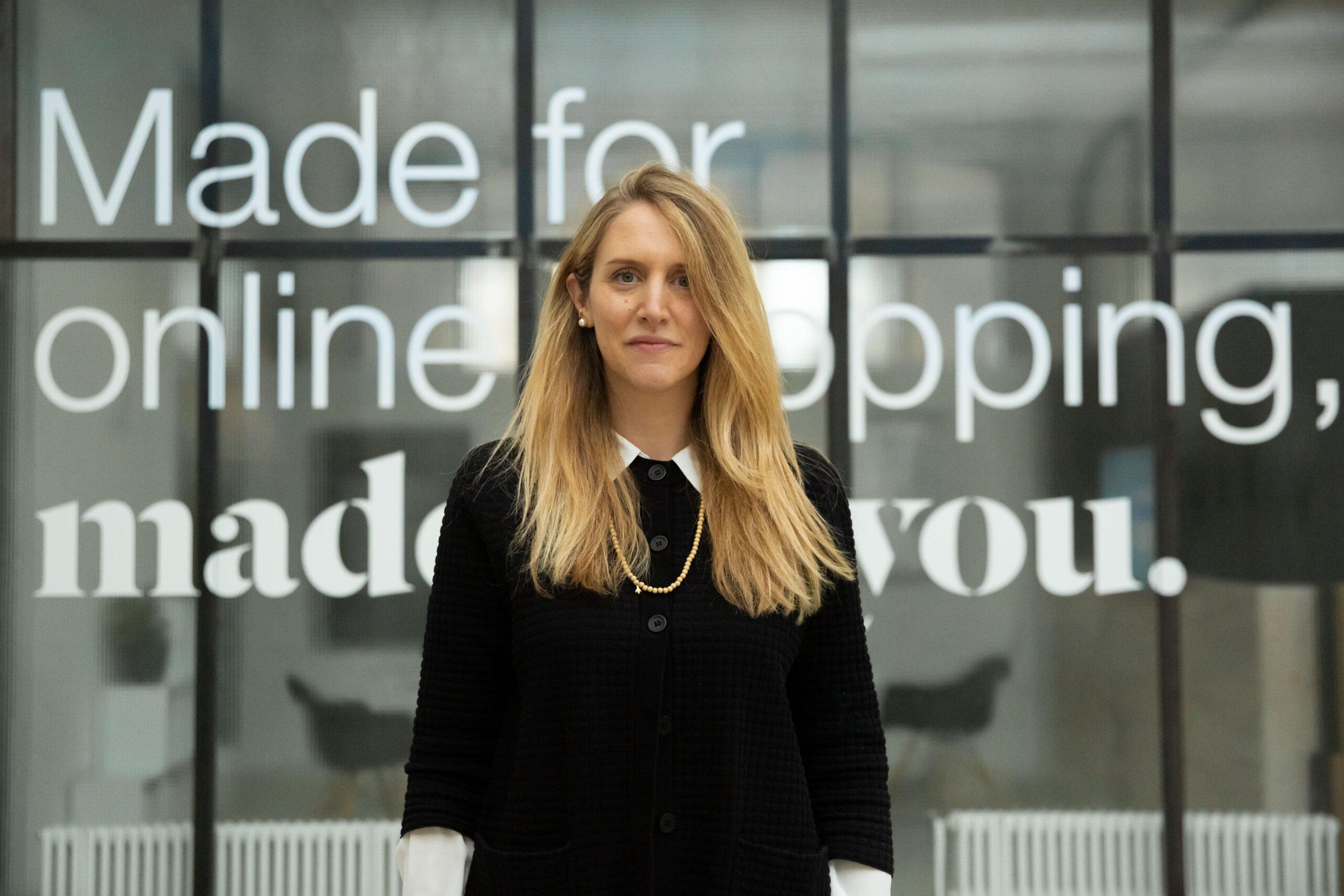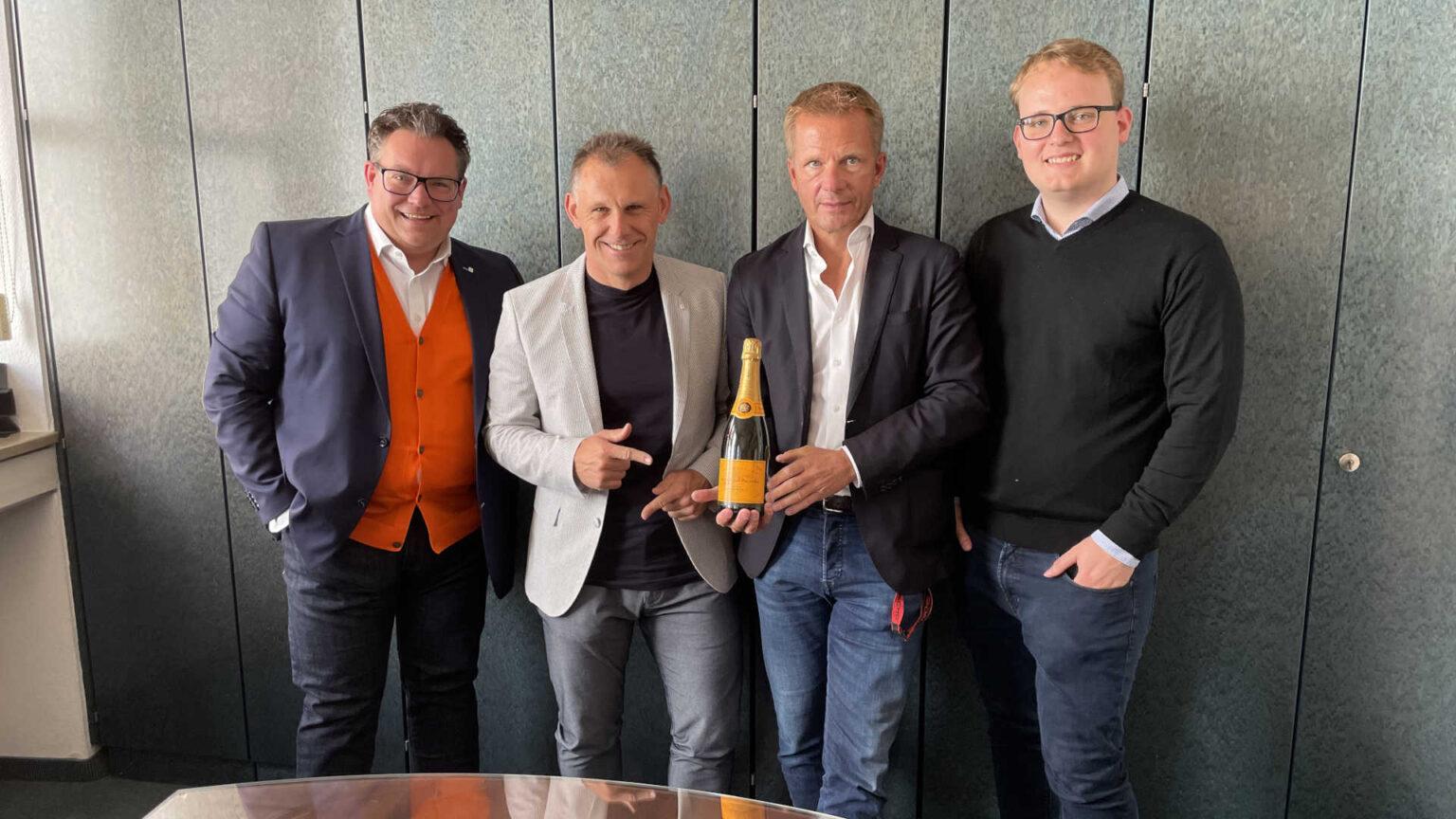"Start-ups don't usually die of thirst, they drown"

Start-ups want to serve all customers. Christoph Rößner from Laserhub explains why this is nonsense.
Christoph Rößner founded the company Laserhub. What sounds like a technology start-up with lasers is actually a platform that brings together buyers and suppliers in the metal and sheet metal sector. Customers can order metal parts via Laserhub and the start-up automatically searches for the best supplier, which should take the pressure off buyers and sales staff on both sides. The start-up now employs more than 100 people and has set its sights on German "hidden champions" such as Trumpf as customers. Here, the founder reveals why you shouldn't chase after all potential customers.
Mr. Rößner, with Laserhub you mediate between suppliers and buyers. Is that still necessary in the 21st century?
The status quo is sobering. In most cases, a company needs a specific metal part and writes to a handful of trusted suppliers. They then laboriously determine a price and respond after a day, sometimes after three or after a week. It takes the suppliers two to three hours to prepare the quotation and in the end there is perhaps a ten percent chance of winning the order. The company that needs the parts has to wait a long time. We are changing that with an automated, digital platform.
How does the Laserhub platform work?
Companies can specify what they need on the platform and we price it using an algorithm in just a few seconds. The buyer then sees what it costs and a supplier receives the order, which they have to accept within a short time frame, otherwise the next best supplier gets the job. The supplier has a secure job, the company saves time and effort and we have a healthy margin.
Who were your customers at the beginning?
They were extremely diverse. In the beginning, every start-up wants as many customers as possible and we were no different. We tried to take every order, but after nine months we realized that it didn't make sense at all.
What did you do differently?
First of all, we collected all the facts. How big are the orders? Who are the customers? What patterns are there? We collected as many data points as we could. For a start-up as young as ours, this sometimes means that a lot of people press Ctrl+C and Ctrl+V in Excel spreadsheets very often, but it was worth every second. But that's only half the job.
What's the other half?
We asked our most important customers for interviews and asked them lots of questions. This made us realize that there were even more data points that matched. We looked for clusters. And that can be quite simple, sometimes with questions like: Where is the best performance? Who is actually responsible for purchasing metal parts? Is the buyer over 50? Where does he break off the process and for what reason? These conversations led to common ground, which then resulted in a target segment for us.
Which one is that?
In principle, we have two customer groups: small and medium-sized companies, usually referred to as hidden champions, and large corporates that need prototypes quickly. We already had a gut feeling about this, but it's one thing to have a feeling and quite another to know it. It changes the whole demeanor, you go into negotiations with a broader chest and the sales department knows much better how to acquire. We have aligned everything accordingly and are concentrating primarily on this. We continue to serve other customers who are not such a good fit via the platform, but we no longer put any effort into them.
Aren't you letting business slip through your fingers?
You can't do everything. Most start-ups have this problem. I have a saying: start-ups don't usually die of thirst, they drown. In other words, they try to satisfy all their customers and take every order. In doing so, they completely lose sight of the data, which may show that they make much less turnover, margin or profit with certain customers. We had to learn that too, and in the end it's the best thing we've ever done. That doesn't mean you can't expand the business from there.
What do you mean by that?
We realize that the hidden champions give us access to smaller companies and suppliers, which in a way radiates off. This gives us new orders and the corporates that buy from our current customers also become aware of us. That's what we're looking at next, but the main target group remains the hidden champions, we simply have a "market fit" for them and we have to take advantage of that.
When is the right time to narrow down the target group in this way?
Exactly at the threshold between "first mover" and "mainstream". This means that the product should already be in place, as should the processes, and it is probably at this stage that the first hiccups occur. Not all processes suddenly fit all customers and you have to look at where you want to focus, i.e. who the customer actually is. Many start-ups find this difficult, but it is perhaps the most important exercise.
Thank you very much for the interview.
Personal details: Christoph B. Rößner is co-founder and member of the management board of Laserhub GmbH. He studied Industrial Engineering at Pforzheim University of Applied Sciences and completed his MBA at Steinbeis University Berlin. In addition to Kurt Prinzing GmbH & Co. KG, his previous positions include ABB, Eight and TTS Tooltechnic Systems. He is responsible for sales and marketing at Laserhub.

Newsletter
Startups, stories and stats from the German startup ecosystem straight to your inbox. Subscribe with 2 clicks. Noice.
LinkedIn ConnectFYI: English edition available
Hello my friend, have you been stranded on the German edition of Startbase? At least your browser tells us, that you do not speak German - so maybe you would like to switch to the English edition instead?
FYI: Deutsche Edition verfügbar
Hallo mein Freund, du befindest dich auf der Englischen Edition der Startbase und laut deinem Browser sprichst du eigentlich auch Deutsch. Magst du die Sprache wechseln?























